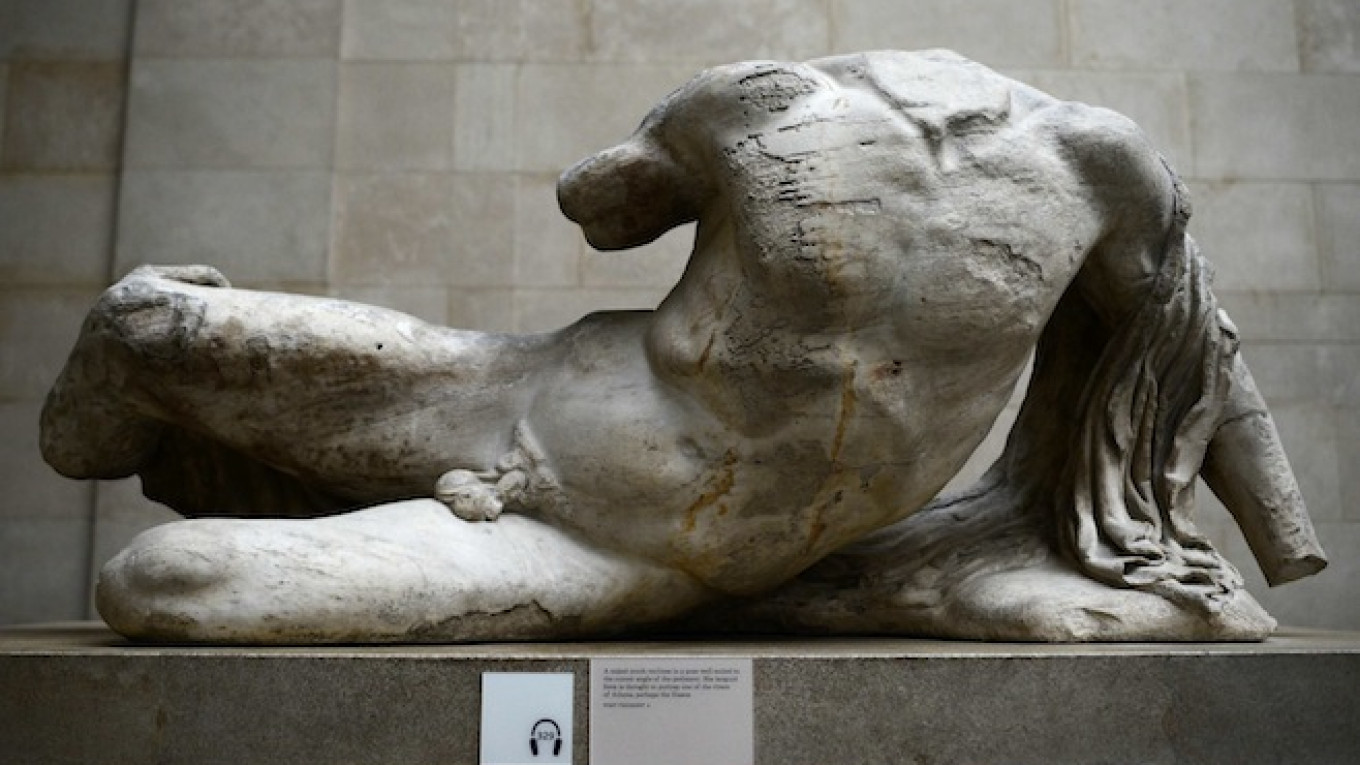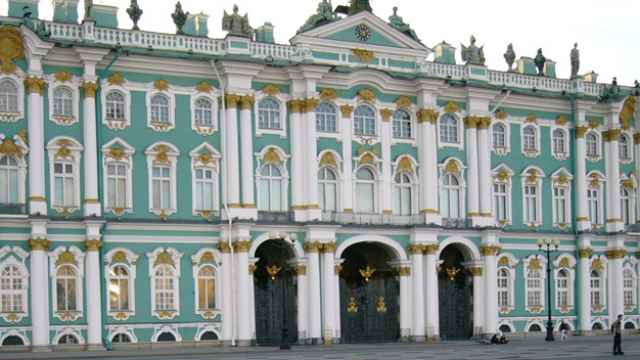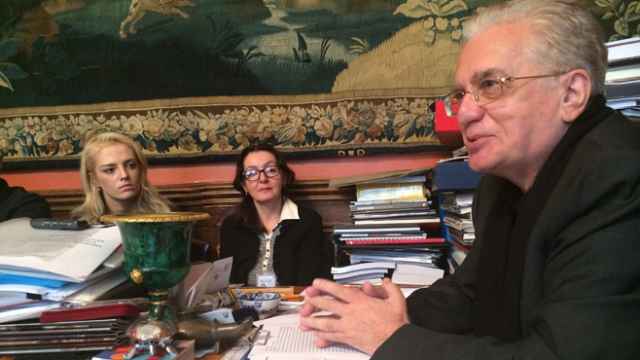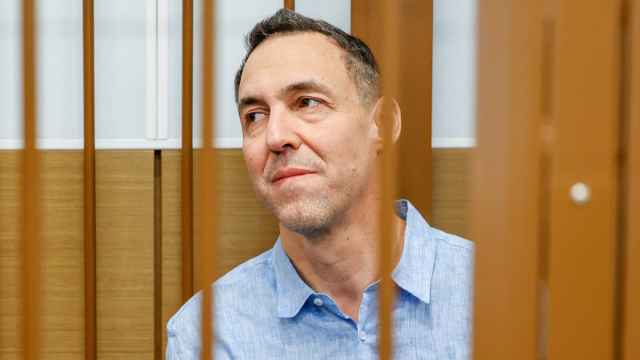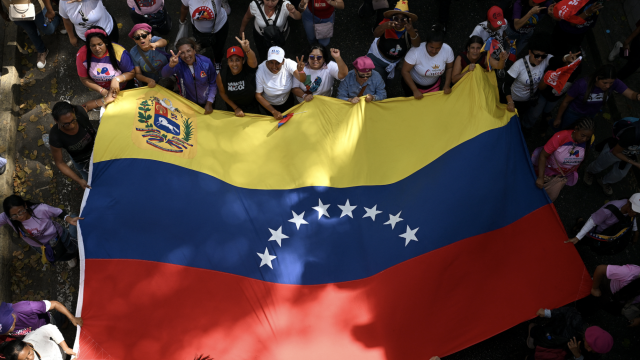LONDON — The British Museum has loaned one of the Elgin Marbles to Russia, the first time any of the ancient sculptures has left Britain since they were taken from the Parthenon in Athens 200 years ago.
The museum said Friday that it had lent the headless, reclining sculpture of the river god Ilissos to the State Hermitage Museum in St. Petersburg as part of its 250th anniversary celebration.
The 2,500-year-old antiquities have long been a source of dispute between Britain and Greece, which has demanded the return of the marbles since the Earl of Elgin took them and sold them to the British Museum in 1816.
Athens argues they were plundered, while London says Greece has no legitimate claim to the statues.
"The trustees of the British Museum … believe that the great things of the world should be shared and enjoyed by the people of the world," Richard Lambert, chairman of the trustees, said in a statement.
"The trustees are delighted that this beautiful object will be enjoyed by the people of Russia."
The statue, which arrived in Russia amid great secrecy, will go on display at the Hermitage on Saturday.
Anglo-Russian relations have been strained by the crisis in Ukraine, and Russian President Vladimir Putin on Thursday accused the West of trying to bring a new Iron Curtain down around Russia.
Neil MacGregor, director of the British Museum, said this made the timing of the loan particularly significant.
"Both institutions believe it is precisely at moments like this that the museums have to keep speaking," he told BBC radio.
The Parthenon stands on the highest point of the Acropolis, which served as both citadel and religious center. Its sculptures were completed by 432 BC, shortly after the Parthenon itself. Most of the surviving pieces are in the British Museum or Greece.
David Hill, chairman of the International Association for the Reunification of the Parthenon Sculptures, said the loan to Russia was "highly provocative" and a "very rude gesture."
"The overwhelming majority of public and professional opinion, even in the U.K., is the British should return the collection to be reunited in Greece," he told BBC radio.
A Message from The Moscow Times:
Dear readers,
We are facing unprecedented challenges. Russia's Prosecutor General's Office has designated The Moscow Times as an "undesirable" organization, criminalizing our work and putting our staff at risk of prosecution. This follows our earlier unjust labeling as a "foreign agent."
These actions are direct attempts to silence independent journalism in Russia. The authorities claim our work "discredits the decisions of the Russian leadership." We see things differently: we strive to provide accurate, unbiased reporting on Russia.
We, the journalists of The Moscow Times, refuse to be silenced. But to continue our work, we need your help.
Your support, no matter how small, makes a world of difference. If you can, please support us monthly starting from just $2. It's quick to set up, and every contribution makes a significant impact.
By supporting The Moscow Times, you're defending open, independent journalism in the face of repression. Thank you for standing with us.
Remind me later.


